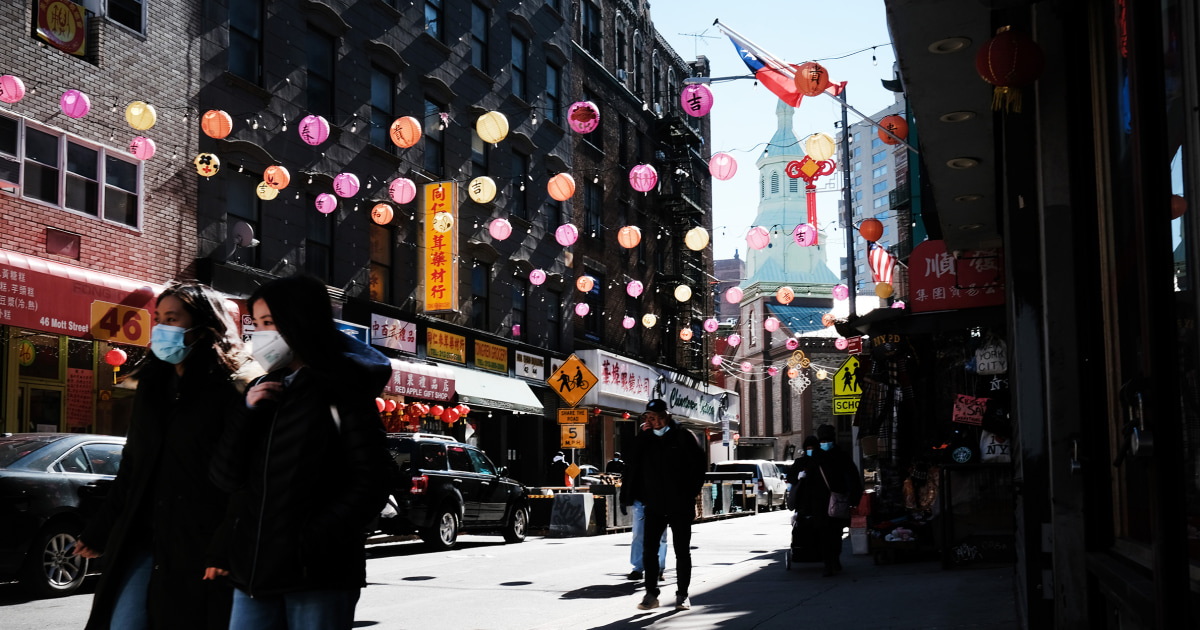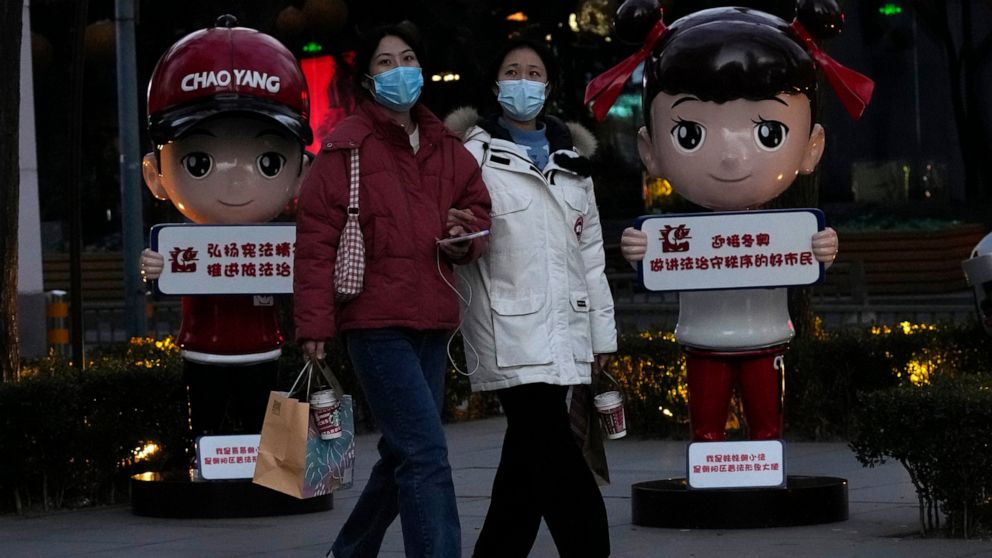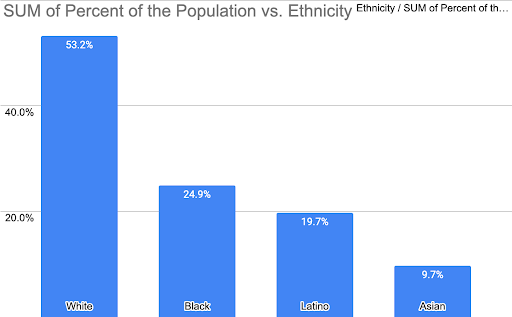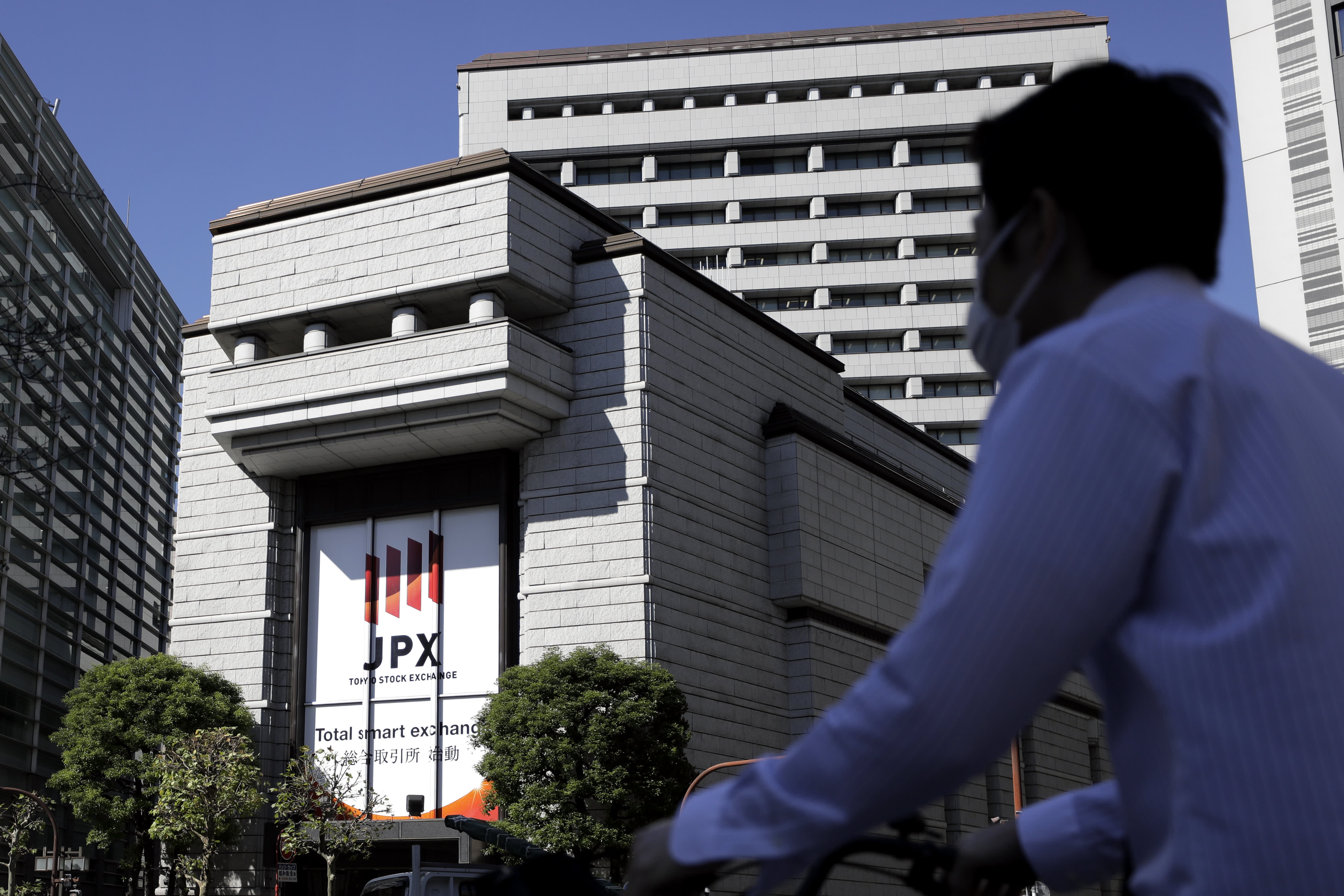The late Rep. John Lewis John LewisHistory shows only a new Voting Rights Act can preserve our fragile democracy Democrats must not give in to self-fulfilling defeatism Hillicon Valley — Five Eyes nations warn of cyber threats MORE (D-Ga.) first introduced legislation to create an African American museum on the National Mall in 1988. It took nearly three decades before the museum was finally completed and opened its doors to the public.
John LewisHistory shows only a new Voting Rights Act can preserve our fragile democracy Democrats must not give in to self-fulfilling defeatism Hillicon Valley — Five Eyes nations warn of cyber threats MORE (D-Ga.) first introduced legislation to create an African American museum on the National Mall in 1988. It took nearly three decades before the museum was finally completed and opened its doors to the public.
Asian American leaders who are now pushing for their own museum know they, too, will have to be persistent and patient. But they see the African American museum as a template for success, and have begun to see some early movement in their effort to preserve and celebrate the history and contributions of the often-overlooked Asian American Pacific Islander (AAPI) community.
A House Natural Resources subcommittee this month held a hearing on a bill authored by Rep. Grace Meng Grace MengAsian American leaders push for national museum of their own 91 House Dems call on Senate to expand immigration protections in Biden spending bill State Democrat group teams up with federal lawmakers to elect down-ballot candidates MORE (D-N.Y.) that would establish a commission to study the possibility of a National Museum of Asian Pacific American History and Culture. Meng and other lawmakers said they hope the legislation will be marked up in January by the full Natural Resources Committee, a critical step before heading to the floor.
Grace MengAsian American leaders push for national museum of their own 91 House Dems call on Senate to expand immigration protections in Biden spending bill State Democrat group teams up with federal lawmakers to elect down-ballot candidates MORE (D-N.Y.) that would establish a commission to study the possibility of a National Museum of Asian Pacific American History and Culture. Meng and other lawmakers said they hope the legislation will be marked up in January by the full Natural Resources Committee, a critical step before heading to the floor.
“I remember the excitement and the pride that was felt by so many when the African American museum opened up, and I thought it was amazing to have in our nation's capital a physical place that housed so much of the history of a community that isn't always taught to people here in our schools,” Meng, who represents a large Asian American community in her Queens district, said in an interview.
“And I just thought that we should, as the fastest growing community in this country, also have a museum that's dedicated to our history and culture.”
The Asian American population grew to 24 million in 2020, up about 20 percent since 2010, according to the U.S. Census. That made Asians the fastest-growing minority group in the country.
But alongside that growth, the COVID-19 pandemic, which originated in China, has triggered a wave of racist and violent attacks against Asian Americans over the past two years, particularly targeting the elderly — a phenomenon that Meng said underscores the need for such a museum of learning and understanding.
“I really felt even more strongly about this during this last year and a half where so many people in our community have been discriminated against or attacked, and thought that it's really important that in our nation's capital we have something dedicated to helping more people learn about our history and culture,” Meng told The Hill.
“I have felt for too long that when people see Asian Americans, they don't truly view us as Americans. They view us as perpetual foreigners.”
Indeed, throughout American history, Asians have made significant contributions to the country while facing discrimination and bigotry. Thousands of Chinese laborers helped build the Transcontinental Railroad, linking the country. But to curb competition and cheap labor, Congress passed the Chinese Exclusion Act in 1882, putting in place a ban on Chinese immigrants that would last for decades.
During the 1907 riots in Bellingham, Wash., hundreds of immigrants from India working in lumber mills were attacked, beaten and driven out of the city.
And after the Pearl Harbor attack, President Franklin D. Roosevelt signed Executive Order 9066, which led to the mass incarceration of 120,000 Japanese Americans civilians solely due to their ethnicity. More than 18,000 of them would volunteer for the Army, forming the 442nd Regimental Combat Team, the most decorated unit of their size in U.S. military history.
“And yet, there is no mention of these American heroes in our history books. In fact, students might go through their entire educational life without learning a single fact about Asian Pacific Americans …” Lisa Ling, the Asian American journalist and host of CNN’s “This is Life” series, testified at the Natural Resources hearing.
“When the stories and histories of a people are excluded from a country’s narrative,” she said, “it becomes easy to overlook and even dehumanise an entire population.”
In 2016, President Obama Barack Hussein ObamaBiden, lawmakers mourn Harry Reid Harry Reid, political pugilist and longtime Senate majority leader, dies Oprah Winfrey offers first comment on Dr. Oz Senate run MORE, the nation’s first black president, led a ceremony to mark the opening of the $540 million National Museum of African American History and Culture, which sits just a couple blocks from the White House.
Barack Hussein ObamaBiden, lawmakers mourn Harry Reid Harry Reid, political pugilist and longtime Senate majority leader, dies Oprah Winfrey offers first comment on Dr. Oz Senate run MORE, the nation’s first black president, led a ceremony to mark the opening of the $540 million National Museum of African American History and Culture, which sits just a couple blocks from the White House.
Other museums are in various stages of planning and development. One year ago, Congress passed a massive spending and COVID-19 relief package that also established the National Museum of the American Latino and the National Women's History Museum. They will be designed, funded and built on the Mall in the coming years.
The Meng legislation would create a commission to study the possible creation of the National Museum of Asian Pacific American History and Culture Act on the National Mall or nearby. That eight-member panel would provide Congress with a strategy for building and maintaining the museum; a fundraising plan; and potential locations.
Rep. Andy Kim (D-N.J.) and other members of the Congressional Asian Pacific American Caucus, known as CAPAC, have been pressing Majority Leader Steny Hoyer Steny Hamilton HoyerHoyer calls for update on review of regulations for carrying firearms in House office buildings Clyburn to Democrats itching for leadership role: 'If you want my seat, come get it' Pressley offering measure condemning Boebert MORE (D-Md.) and Speaker Nancy Pelosi
Steny Hamilton HoyerHoyer calls for update on review of regulations for carrying firearms in House office buildings Clyburn to Democrats itching for leadership role: 'If you want my seat, come get it' Pressley offering measure condemning Boebert MORE (D-Md.) and Speaker Nancy Pelosi Nancy PelosiBiden, lawmakers mourn Harry Reid Narrow path forward for Build Back Better Biden's policies are not very merry MORE (D-Calif.) to carve out floor time for the bill next year. Pelosi’s San Francisco district is about 35 percent Asian Americans.
Nancy PelosiBiden, lawmakers mourn Harry Reid Narrow path forward for Build Back Better Biden's policies are not very merry MORE (D-Calif.) to carve out floor time for the bill next year. Pelosi’s San Francisco district is about 35 percent Asian Americans.
But the legislation will first need to pass out of the full Natural Resources panel, something committee members say should not be a heavy lift.
“We do a lot of marking up, so I think it’ll go quickly,” said Rep. Katie Porter (D-Calif.), who represents a large Asian American community in Orange County and who chaired the subcommittee hearing on Meng’s bill. “Markup will probably be the very first thing next year.”
One big task for a commission would be how to pay for the museum. Just like the African American museum, the Latino and women’s museums will be financed with half coming from federal funding and half from private donations. The Asian museum would likely follow that model should it be built.
But Porter said she would like to see a future Asian museum receive a steady stream of federal funding to keep it running year after year. The National September 11 Memorial & Museum, which is operated by a nonprofit and relies mostly on ticket sales and private donations, has struggled to stay out of the red amid closures and fewer visitors related to the pandemic, an official testified.
“Personally, I thought it was a little bit of a cautionary tale about private funding, based on what we've heard from the 9/11 museum. … When COVID hit and they had to shut down and they had no visitors, they're needing to come back each time to Congress” and ask for money, Porter said.
“I would rather see a sturdy, stable public-funded model, which we have seen work time and time and time again.”
Adblock test (Why?)
"asian" - Google News
December 29, 2021 at 06:00PM
https://ift.tt/3ewogqn
Asian American leaders push for national museum of their own | TheHill - The Hill
"asian" - Google News
https://ift.tt/2STmru2
Shoes Man Tutorial
Pos News Update
Meme Update
Korean Entertainment News
Japan News Update












/cloudfront-us-east-1.images.arcpublishing.com/pmn/E3D4KTGW2VC4THTDEZAK7IV5Q4.jpg)
/cloudfront-us-east-1.images.arcpublishing.com/pmn/GTVL6EACYRCYPIDJT5CA7ECQI4.jpg)
/cloudfront-us-east-1.images.arcpublishing.com/pmn/S7XZARX5N5D6BB6O472QMZ55MQ.jpg)

